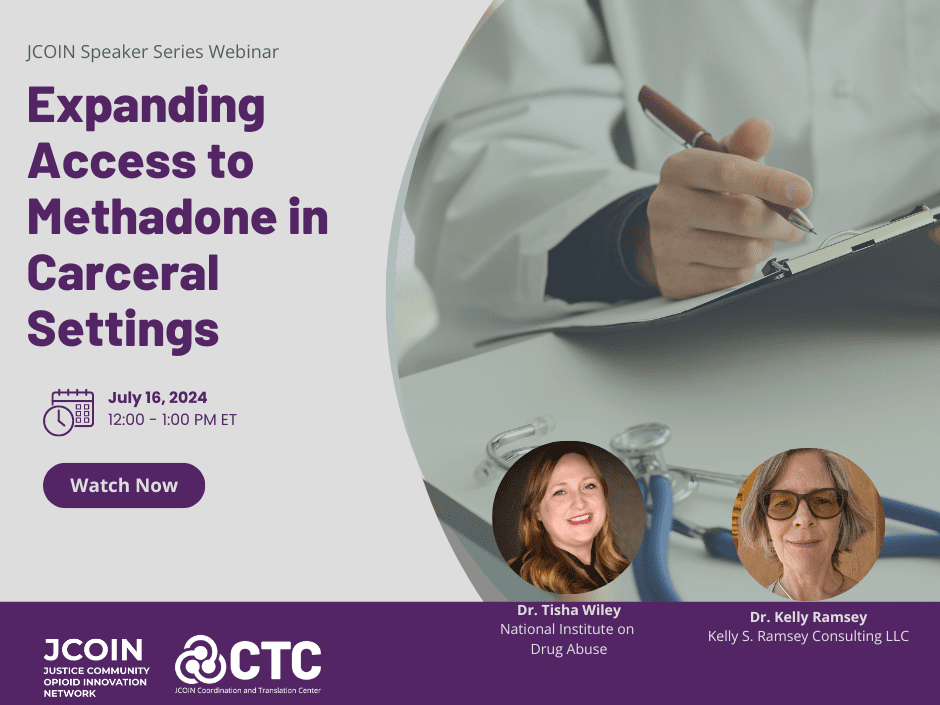Expanding Access to Methadone Treatment for Opioid Use Disorder in Carceral Settings
In April 2024, the Substance Abuse & Mental Health Services Administration (SAMHSA) issued a final
rule on regulations regarding opioid treatment program (OTP) accreditation, certification, and standards
for the treatment of opioid use disorder (OUD). This rule change affects the use of methadone, including
clarification on use of methadone in carceral settings. Under the updated final rules of 42 CFR Part 8,
jails and prisons may register as a hospital or clinic. Jails/prisons may stock and dispense methadone to
treat OUD and manage acute opioid withdrawal syndrome.
This webinar provided an overview of the updated final rules of 42 CFR Part 8 and how they affect methadone dispensation in carceral settings. Speakers discussed the:
- Process for how carceral settings can use the updated SAMHSA rule to increase methadone access;
- Drug Enforcement Agency’s (DEA) regulations around dispensing methadone and buprenorphine;
- Role of state regulations for accessing MOUD; and
- Considerations for carceral settings when establishing a methadone dispensing program.
Speakers:
- Kelly Ramsey, MD, MPH, MA, FACP, DFASAM, Internal Medicine and Addiction Medicine Physician, Addiction Medicine and Harm Reduction Consultant
- Tisha Wiley, Ph.D., Branch Chief, Associate Director for Justice Systems, National Institute on Drug Abuse (NIDA)
Related Resources from Johns Hopkins University
- Fact Sheet: Providing Methadone in Jails and Prisons: An explanation of a new approach to increase access to methadone in carceral settings
- White Paper: How the Drug Enforcement Administration Can Improve Access to Methadone in Correctional Facilities and Save Lives
- Brief FAQ on Methadone Use to Treat Opioid Use Disorder (OUD) in Carceral Settings Using the Hospital/Clinic Designation
- Public Forum: Expanding Methadone Access in Correctional Facilities
This webinar is sponsored by the Justice Community Opioid Innovation Network (JCOIN), an initiative funded by the National Institute on Drug Abuse (NIDA). The webinar is also in partnership with the Addiction Policy Forum.


